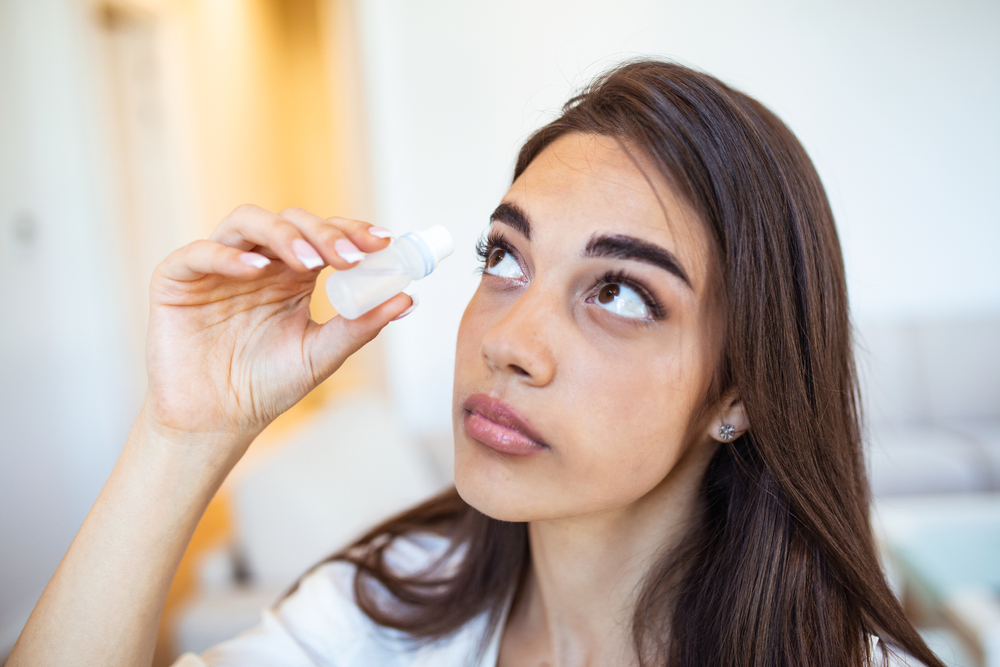
If you've ever experienced the discomfort of dry, irritated eyes, you may have also noticed your vision becoming less sharp or even blurry. While many people associate dry eye with the sensation of burning or grittiness, fewer are aware that it can also lead to visual disturbances, including blurred vision.
What is Dry Eye?
Dry eye syndrome occurs when your eyes don’t produce enough tears or when the quality of your tears is inadequate. Tears are essential for maintaining clear vision because they help to keep the surface of your eyes moist and free from debris. When your eyes are unable to produce enough tears or the tears evaporate too quickly, it leads to discomfort and potential vision problems. There are several reasons why dry eye can lead to blurred vision.
Irregular Tear Film
The tear film plays a critical role in maintaining clear vision by providing a smooth surface over the cornea. When your eyes are dry, the tear film becomes unstable and patchy, resulting in an uneven corneal surface. This irregularity can scatter light as it enters the eye, making your vision blurry or distorted.
Inflammation
Inflammation is a common side effect of chronic dry eye and can affect the structures of the eye, including the cornea and eyelids. When inflammation occurs, it can disrupt normal tear production and lead to blurred or fluctuating vision.
Reflex Tearing
In some cases, the dryness can trigger reflex tearing, where your eyes attempt to compensate by producing excess watery tears. However, these tears do not provide the same lubricating benefits as the balanced tear film, leading to persistent blurry vision even when your eyes appear watery.
Contact Lens Discomfort
For those who wear contact lenses, dry eye can exacerbate lens discomfort and interfere with vision. Contact lenses rely on a healthy tear film to stay moist and functional. When dry eye disrupts this balance, it can cause blurriness and discomfort while wearing lenses.
When Should You Be Concerned?
While occasional blurred vision due to dry eye may not be a cause for alarm, persistent or worsening symptoms should be evaluated by an eye care professional. Blurred vision can also be a sign of other eye conditions, such as cataracts, glaucoma, or macular degeneration, so it's essential to have regular eye exams to rule out any underlying issues.
What Can Be Done to Treat Dry Eye and Blurred Vision?
If you experience blurred vision due to dry eye, there are several treatments available:
Artificial Tears: Over-the-counter artificial tears can help lubricate your eyes and reduce blurriness.
Prescription Eye Drops: For more severe cases, prescription drops can address inflammation and stimulate tear production.
Punctal Plugs: In cases where tears evaporate too quickly, punctal plugs can be used to block the tear ducts and help retain moisture on the surface of the eyes.
Lifestyle Changes: Adjusting your environment, staying hydrated, and taking breaks from screen time can also make a significant difference in managing dry eye symptoms and reducing blurred vision.
Optimizing Your Vision and Eye Health with Clarity Vision
Blurred vision caused by dry eye is not only uncomfortable but can also interfere with daily tasks such as reading, driving, or using a computer. If you’ve been experiencing dry eye symptoms and blurred vision, schedule an appointment with Clarity Vision to discuss your symptoms and explore the most effective treatment options for you. With the right care, you can restore comfort to your eyes and enjoy clearer vision once again.
Contact Clarity Vision to learn more about how we can help manage your dry eye symptoms and improve your vision. Visit our office in Smithfield, North Carolina, or call (919) 737-7200 to book an appointment today.
















